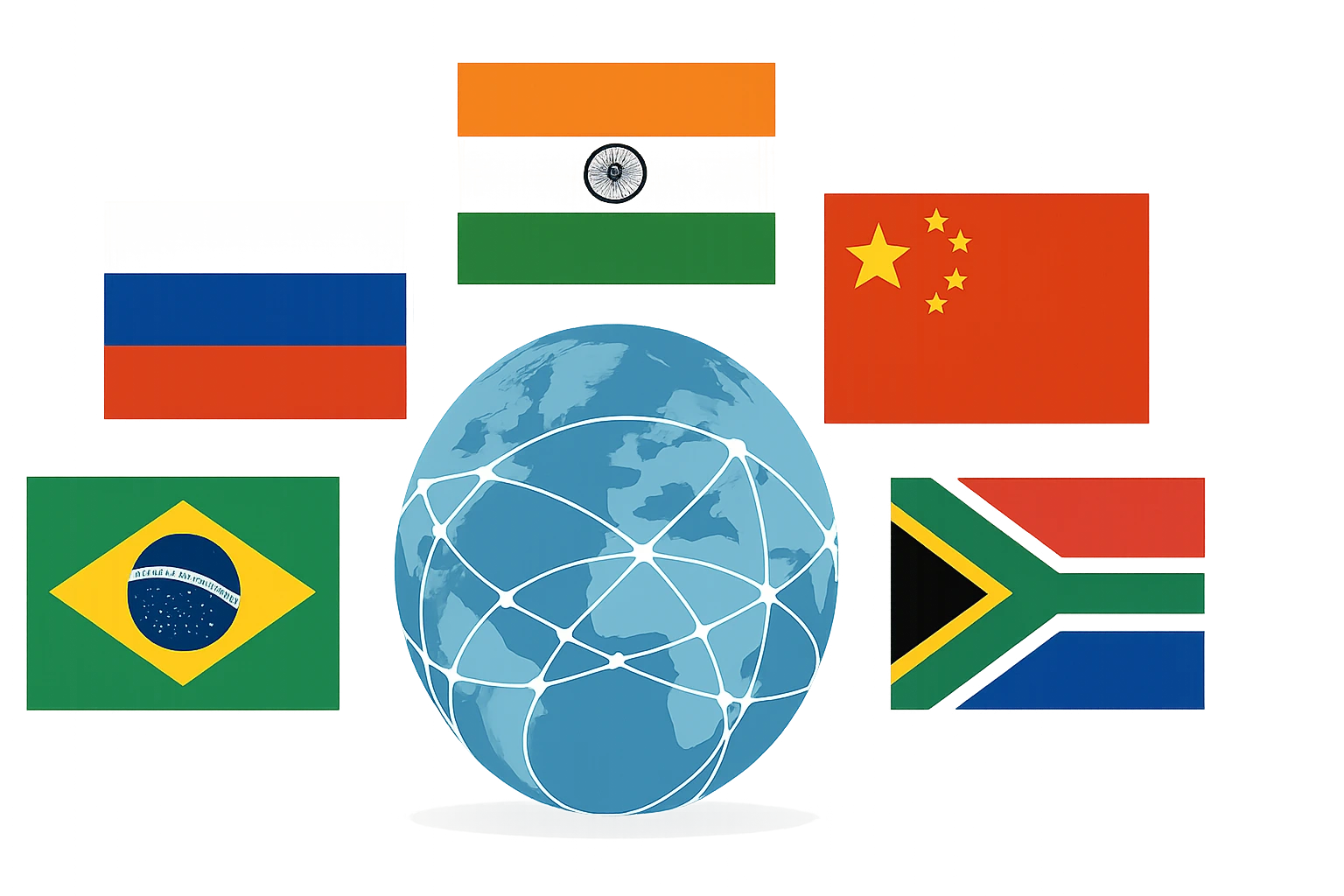BRICS is an international grouping that initially brought together five major emerging economies: Brazil, Russia, India, China, and South Africa. The acronym BRICS stands for these countries, and it was originally BRIC before South Africa joined in 2011. Recently, this coalition has grown to include six additional countries—Saudi Arabia, Egypt, United Arab Emirates, Ethiopia, Indonesia, and Iran—broadening its membership to eleven nations. This expansion highlights BRICS’ goal to increase cooperation and strengthen the influence of developing nations on the global stage.
Understanding BRICS
BRICS was formed as a collective of significant emerging markets aiming to create a counterbalance to the dominant Western powers in global institutions like the International Monetary Fund (IMF), World Bank, and World Trade Organization (WTO). The organization’s core purpose is to promote economic, political, and social collaboration among its members, focusing on sustainable development and fairer representation in international governance. By doing so, BRICS seeks to present a united front to reshape existing global institutions so they more accurately represent the world’s current economic and political realities.
Origins and Growth
The term “BRIC” was first coined in 2001 by economist Jim O’Neill, who recognized Brazil, Russia, India, and China as potential future economic powerhouses capable of significantly influencing global affairs by mid-century. The group held its first formal summit in 2009, gradually evolving into a more structured platform for dialogue among these fast-growing economies. South Africa’s membership beginning in 2011 marked a shift toward a more comprehensive global south representation. The recent addition of six countries has expanded BRICS’ geographical reach to include vital regions across Africa, the Middle East, and Southeast Asia.
The 2025 BRICS Summit Highlights
In July 2025, Brazil hosted the 17th BRICS Leaders Summit in Rio de Janeiro. The meeting’s theme emphasized strengthening cooperation among Global South countries and pushing for a more inclusive and sustainable form of global governance. The summit concentrated on key areas such as global health, trade and investment, climate change, artificial intelligence regulation, security governance, and institutional reform.
Also Read: India’s Space Observatory AstroSat and Its Groundbreaking Discovery on Black Hole GRS 1915+105
Key outcomes from the summit included calls for:
- Reforming the United Nations Security Council to accommodate permanent seats for Brazil and India.
- Revising the voting structures at the IMF and World Bank to better represent emerging economies.
- Collaborative approaches to climate change aligned with sustainable development goals.
- Establishing ethical frameworks for global AI governance to prevent widening the digital divide.
- Creating a BRICS-driven multilateral insurance mechanism to de-risk investments in infrastructure projects across developing countries.
These initiatives signal BRICS’ intention to establish alternative systems and strengthen unity among member states, providing a counterweight to Western-dominated global institutions.
Challenges Within the Group and Global Dynamics
Despite its ambitions, BRICS contends with internal differences. The 2025 summit notably saw absences from Russian and Chinese leadership, reflecting some divergence on critical foreign policy and regional issues, including the war in Ukraine. These variances highlight ongoing challenges in maintaining cohesion within the bloc.
Externally, the group’s growing influence has sparked responses from established powers. For instance, former U.S. President Donald Trump criticized BRICS for what he viewed as attempts to diminish the role of the U.S. dollar and warned of potential tariff increases on member nations. Brazil, which held the chairmanship in 2025, rejected these claims and advocated for a multipolar world without dominance by any single power.
Looking Forward
India is set to take over the BRICS chairmanship in 2026 and will host the 18th summit. The future success of BRICS will depend on its ability to balance internal diversity with shared goals, translate summit declarations into meaningful cooperation, and reform global institutions to better serve emerging and developing countries.
In summary, BRICS represents a significant effort by large developing nations to reshape the international order. Its evolving membership, policy focus, and diplomatic efforts underscore its role as a major player advocating for a more balanced global system that incorporates the interests of the Global South.

